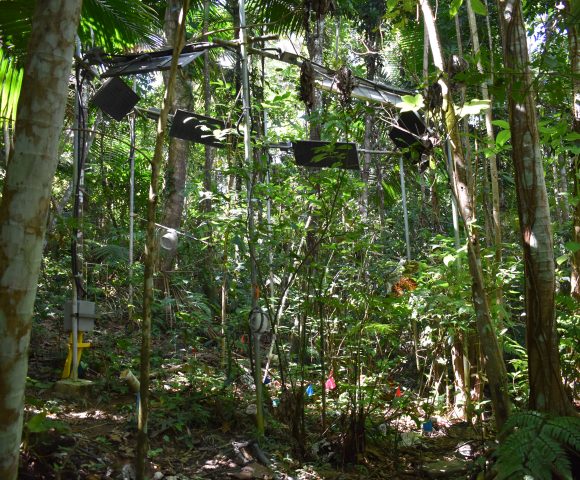
Global Warming Causes Rainforest Soil to Release Trapped Carbon at Record Rates, Schmid Professor’s Paper Finds
A new paper by Schmid College Professor Christine O’Connell found that rising global temperatures could release record amounts of greenhouse gases from rain forest soils. Christine O’Connell, Ph.D, is a soil ecologist and an assistant professor of biology at Schmid College. She has spent the past ten years studying rain forest soils and their role
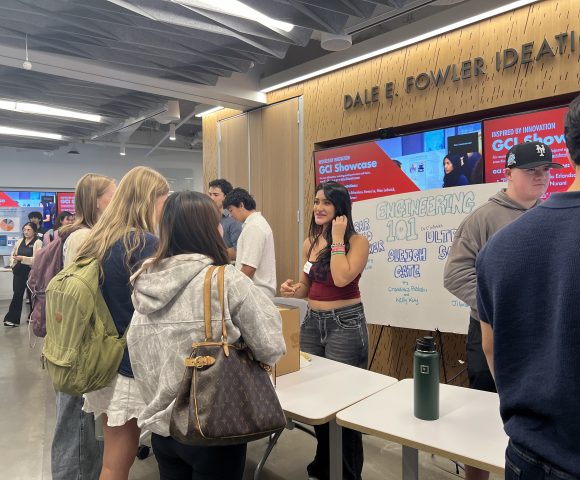
GCI-Fowler Joint Showcase Explores ‘Smart’ Dog Collars, Diabetes Risk Screening and More
In December, Chapman students presented their Grand Challenges Initiative projects, each tackling pressing problems in science and engineering. The Grand Challenges Initiative (GCI) is a two year program that invites students from Schmid and Fowler Colleges to research pressing problems in science and technology. Four to six students work together under a research mentor to
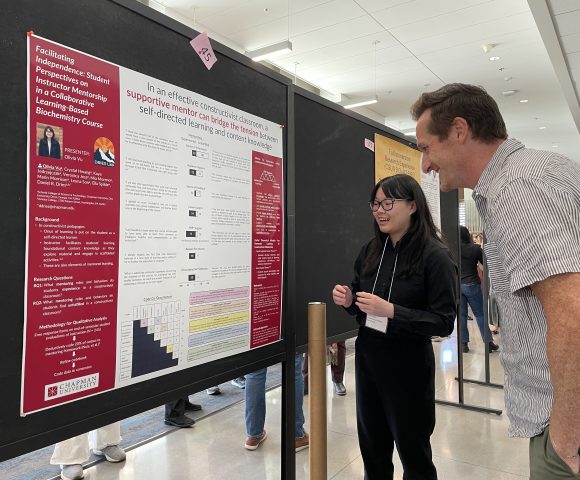
Chapman Undergraduates Shine at SABER West 2026
Ten undergraduate students from Chapman University, including six dedicated majors and minors from Schmid College of Science and Technology, recently had the remarkable opportunity to present their research at the Society for the Advancement of Biology Education Research (SABER) – West conference. For these students, standing alongside educators and researchers at a professional conference was
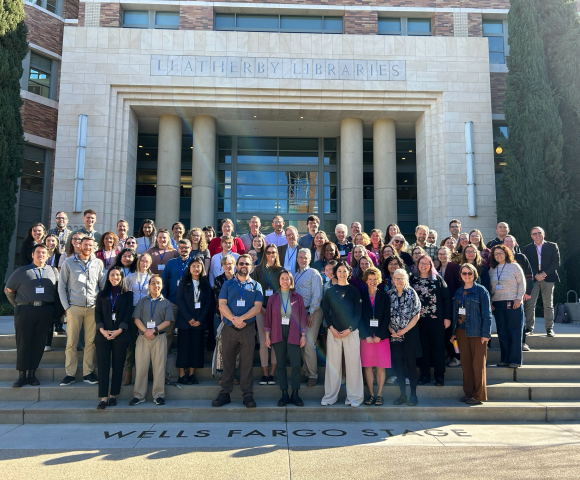
Chapman University Hosts Inaugural National Conference on Advancing Research in Quantitative Reasoning in STEM Education
Earlier this month, nearly a hundred attendees converged upon Chapman University for a landmark two-day conference focused on “Advancing Research on Quantitative Reasoning in STEM Education.” Co-hosted by Schmid College of Science and Technology and Attallah College of Educational Studies, the event attracted researchers, educators, and practitioners from 46 institutions across 26 states, reflecting a
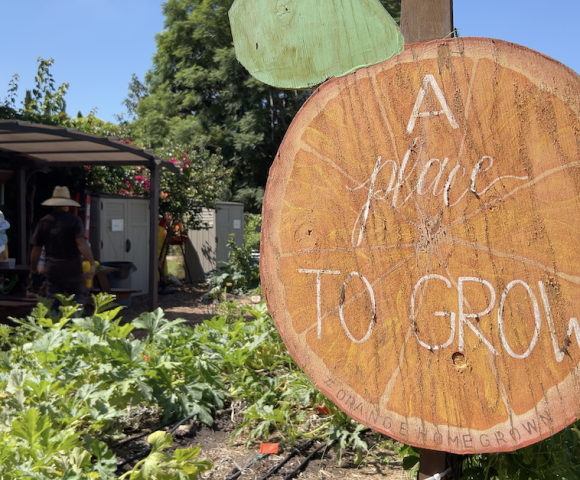
Cultivating Community: The Orange Home Grown Education Farm
Tucked away on a residential side street, in the shadow of a parking garage, something is growing. The Orange Home Grown Education Farm, located two blocks away from Chapman University’s main campus, aims to teach the community about agriculture. The Orange Home Grown Foundation is a local Orange Country nonprofit best known for their weekly

Biofuel, Lasers and Global Citizenship
Four Chapman students recently returned from Stockholm, Sweden after a “life-changing” ten-week summer program researching sustainable biofuel production and storage. Studying abroad is a defining part of many students’ college experiences. But for those pursuing degrees in the sciences, finding the time for a semester abroad can be challenging. The answer for many STEM students?
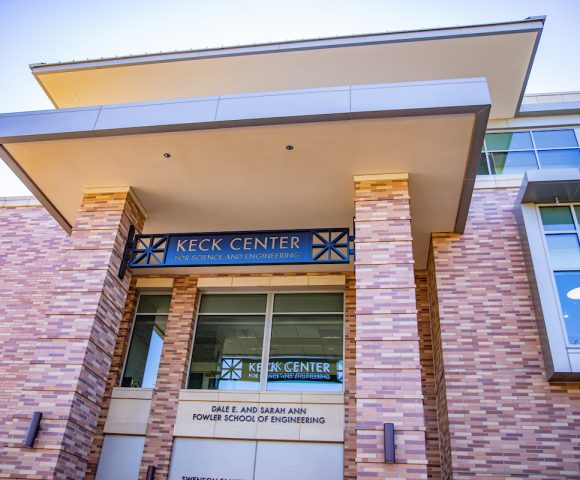
June Research Highlights
Schmid College of Science and Technology continues to produce world-class research on the environment. A new publication in the journal Earth’s Future from senior research associate Wenzhao Li, including faculty members Thomas Piechota, Joshua Fisher and Hesham El-Askary, considers the significant changes in the weather conditions of the western U.S., marked by increased variability and
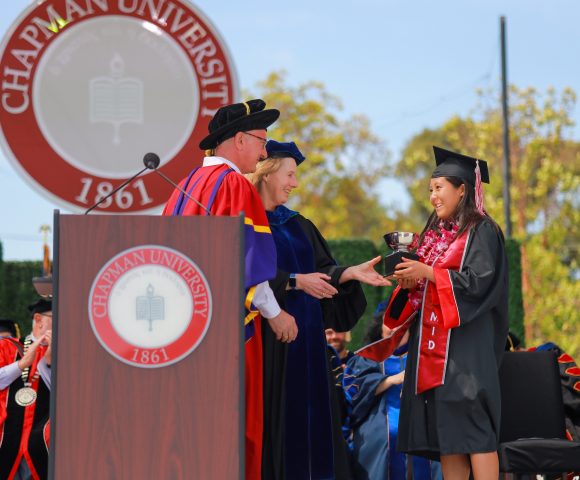 Article from
Article from news.chapman.edu
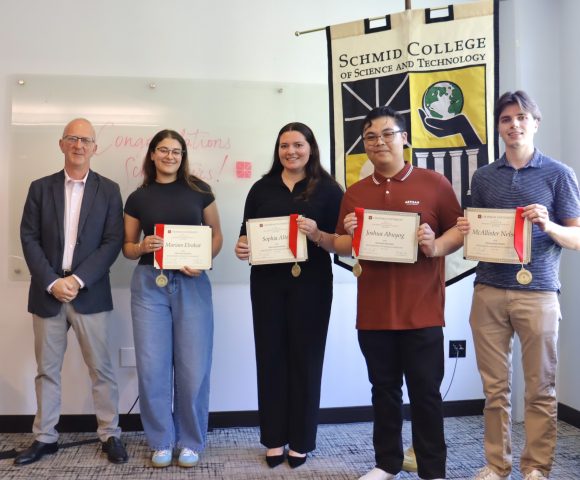
Schmid College Awards Night Celebrates Student Excellence
The annual Schmid College Awards Night was held on May 21, 2025. Students graduating with a bachelor’s degree in Schmid College of Science and Technology will earn program honors by meeting the following criteria: Students must have a major GPA of 3.500 of higher and must have completed independent research. Completion of independent research includes the

Sophie Alter '25 Wins Ronald M. Huntington Award for Outstanding Scholarship
Sophie Alter, a senior biochemistry and molecular biology major, has been named the recipient of the Ronald M. Huntington Award for Outstanding Scholarship for 2025. The Ronald M. Huntington Award is bestowed upon the graduating senior judged to have exhibited the most distinguished record of scholarly accomplishments while a student at Chapman University. Evidence of